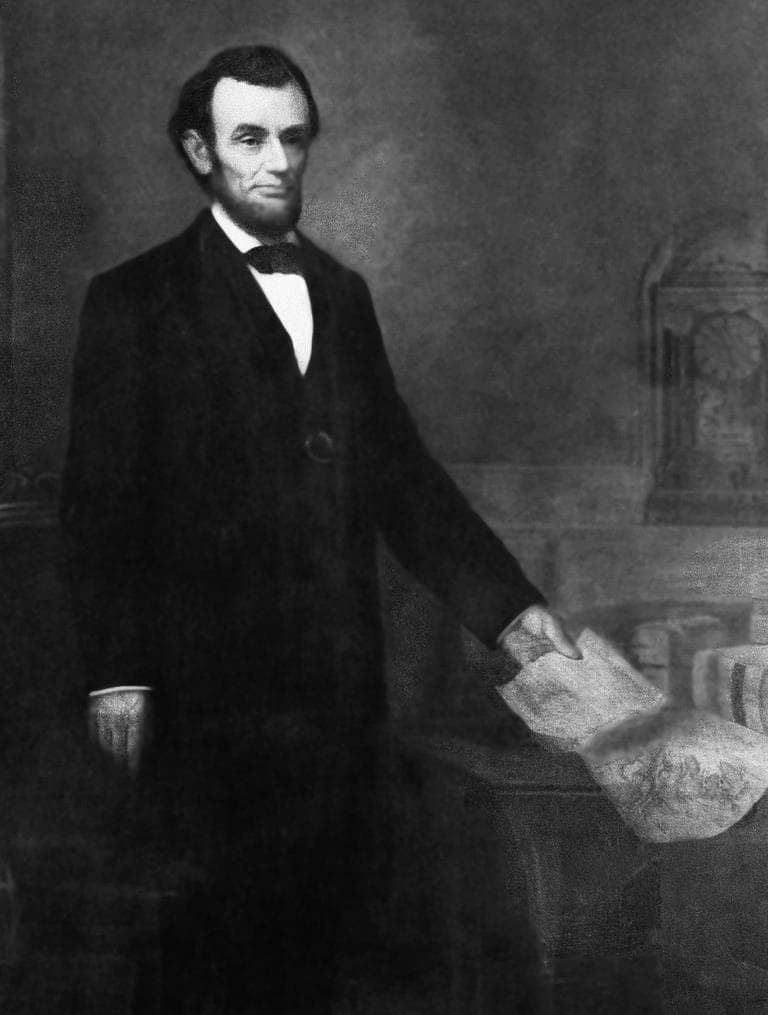 |
| Abraham Lincoln with the 13th Amendment |
1. To what extent was Lincoln "uncompromising"? To what extent was Thaddeus Stevens (leader of the Radical Republicans) "uncompromising"? What were they willing to compromise on? What were they not willing to compromise on?
Lincoln was uncompromising in his beliefs of anti-slavery, his ideas did not change. Of course Lincoln was against the continuation of the war but he had to compromise and find ways to prolong the war and the ending of it until the passing of the 13th Amendment. Thaddeus Stevens was always a power house and could put down any one who faced him. He believed all people should be equal and given a chance and he always thought this, but his ideas of equality and political equality were mixed and changed.
2. To what extent did the movie provide evidence of Lincoln's perspective as depicted in the Lincoln letters?
At the beginning of the letters Lincoln but the Constitution and the Union first, but nearing the end of the letters his first objective was ending slavery as a whole. In the movie there is always a frustration in Lincoln because he wants slavery to be non-existent but he has to comprise many of times for the better of the Union and for the American people to not catch on to his ideas. If the people discovered that Lincoln was continuing the war just for the 13th Amendment to pass what would they think?
3. Why did Lincoln believe the 13th Amendment was essential?
Lincoln believed the 13th Amendment was essential because it needed to be passed before the end of the Civil War. At the end of the war all slaves would be freed meaning all those slaves would become citizens in the South. If the South was to gain all those citizens that means that there would need to be more representatives in Congress on behalf on the South and the South would have more power than in Congress than the north. Once the war was over and slavery end, the amount of representatives in the South would again vote slavery as legal. Lincoln saw this and knew the 13th Amendment could stop this, but it needed to be passed before the war ended.
4. How did the film complicate the narrative that the North was against slavery and/or for racial equality, while the South was for slavery and against racial equality?
When I was watching the movie I did not a huge difference between the North's beliefs and the South's beliefs. All the Congress members and political representatives were all disagreeing with their beliefs. The film did not show any major events of the North prosecuting blacks and no events of the South lifting the slaves up. Watching the movie we have to believe the differing beliefs from what we were told instead of what we were shown through their actions.
5. For what reasons did people seem to resist the ending of slavery? Did the film depict this as a matter of concern for property rights, or something else?
A large reason people were against the ending of slavery was for economic reasons. If there slaves were freed then now they would have to pay for labor instead of having their slaves as property and working for them for free. The film did not depict this about slavery on the economic side. And people believed slaves to be their property and thought it unlawful for their property to be taken from them.
No comments:
Post a Comment